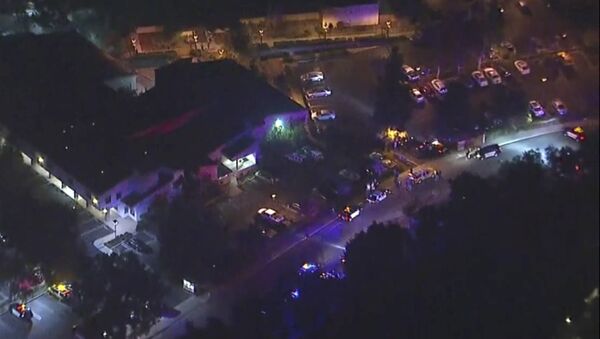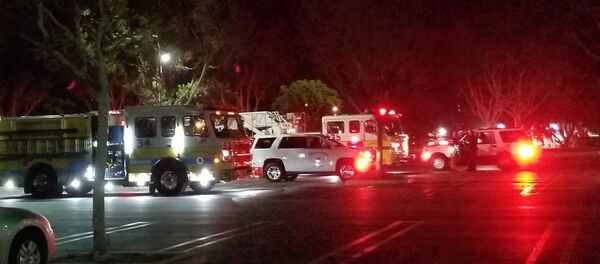Feinstein, who represents the state of California, also said that a number of bills that would prevent individuals from buying guns, including bans on high-capacity ammunition magazines and military-style assault weapons, are ready for a vote.
Sputnik spoke to Laura Dugan, PhD, Professor and Associate Chair of Criminology and Criminal Justice atUniversity of Maryland for more insight on the issue.
Sputnik: California is one of the states with the strictest laws regarding guns, but this tragic event still occurred. Does it mean that this shooting was less about guns and more about shooters themselves?
Laura Dugan: When we pass policy and laws to decrease gun violence, we know that it is unlikely that those efforts will stop all gun violence. Of course, we hope they do, but we expect that they should stop some, reducing the rate of shootings in those states with stricter laws. Thus, it does not mean that this shooting was less about guns.
The truth is that all shootings are about the guns, shooters, and context. More will be revealed as we learn more about the shooter. In the meantime, we need to avoid pitting one possible cause against another because shootings have many possible causes, and they can co-contribute to the events.
Laura Dugan: I think that any state can further limit the availability of guns, however, whether they do so in this case will depend on a few things. First, did the shooter obtain his pistol legally?
The answer to this will dictate whether there is an obvious hole in the law or in the implementation of the law. Laws are difficult to pass because legislators are held accountable to their constituency, and even California lawmakers have gun-loving constituents. We shall see how it plays out.
Sputnik: It’s been reported that the shooter experienced extreme post-traumatic stress after serving in Afghanistan. Do you think this tragic case is just another reminder of how many veterans have serious psychological disorders?
Laura Dugan: It might be. Many veterans do suffer from PTSD and many of those veterans are not receiving the care they need. Again, more will be revealed.
This particular case does not have any obvious political or ideological motives since the club seemed to be mainstream, rather than serving a marginalized population.
Sputnik: Do mass shooters fit a specific profile? Could psychiatrists identify a specific type of person who poses a serious threat to the society?
For example, most mass shooters are white men, yet, we cannot restrict the actions of white men out of fear that they will conduct a mass shooting.
Sputnik: Could both opposing sides (gun supporters and anti-gun movement proponents) find any common ground on gun control?
Laura Dugan: As for the common ground question, the US is more divided than it has been in a long time. After the recent mid-term elections, things are worse.
I doubt that the political divide will soften any time soon. Having said that many gun owners have spoken publicly about banning automatic weapons. I think that the more people like that speak up, the more others will reconsider their staunch stances. I’m not sure how this will lead to change in the current political climate, but I find it promising.
Views and opinions expressed in this article are those of Laura Dugan and do not necessarily reflect those of Sputnik.




